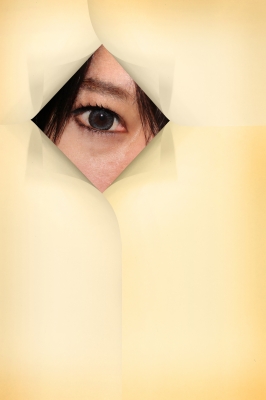
Writing any application for a school can be difficult, and writing the Personal Statement can become the most challenging part of it. By the time you are preparing to submit an application, most of its elements are already fixed: your GPA, your MCAT or GRE scores, the activities you did (or didn’t do). The Personal Statement, however, is an open field of possibilities in self expression, and that sense of ambiguity lends itself to great liberty and/or great anxiety.
Admittedly, the title is somewhat misleading. A “Christian” personal statement shouldn’t technically be very different from any other personal statement. It still has to accomplish the same goals, which are fairly well defined in the context of applying for a graduate or professional school. As an example, an excellent source on the Medical School Personal Statement would advise you to focus on answering these questions:
- What have you done that supports your interest in becoming a doctor?
- Why do you want to be a doctor?
- How have your experiences influenced you?
Sounds simple? It’s not. Few people can easily articulate the reasons why they want to go into medicine (and this even includes those who have been working in medicine). As reflected on before, the most powerful reasons tend to be emotionally charged and heavily driven by personal experiences, desires, and ambitions. Sometimes these reasons spring from tangible and discrete moments that are relatively simple to describe: a father becomes ill, a friend becomes helpless, a tragedy unfolds in which the universal compulsion to heal and to comfort becomes central and even life-changing. But sometimes those reasons are harder to describe: a series of loosely connected jobs that led to an internal conviction, an affection for both the material and immaterial, a search for a career grounded in the authenticity of human experiences.
The more personal these experiences are, the more uncomfortable and self-conscious we become in describing them. We wonder if others will see things from our perspective, and as we struggle to describe them in nouns and adjectives and run-on sentences, we find it easy to become paralyzed by the fear that the reader/admission officer/judge will fail to understand . . . and in doing so, reject us as both applicants and as people. It is deeply unsettling because the process will require an act of introspection and then an act of public revelation.
So, like all other expressions of self-revelation, we are tempted to edit heavily. We want to be accepted for who we are but we also want to achieve a goal. We have an ideal that motivates us, but in order to achieve it we must submit it to the scrutiny of another . . . and in that process, we risk having it change.
What do I mean by this? I mean that I volunteered at a soup kitchen because I wanted to help people, but in writing the essay I wanted to make sure that the reader understood just how deeply I felt that emotion, so I overplayed the descriptions of how scraggly the hobo’s beard looked or how heart-melting that child’s eyes were. I mean that I did research because it sounded interesting and I enjoyed tinkering around in the lab, but I wanted my work to be respected so I added a gazillion extra adjectives about how triumphant or beatified I felt when gazing through the clear liquid in a test tube. I mean that I felt helpless when I sat by my friend’s bed as she lay dying or in watching my sister get bullied in speech therapy, but I wanted to do rightly by them in becoming a doctor so I wrote whatever bastardized piece of junk I felt needed to be written in order to get the job done. I mean I wanted to talk about Jesus and what he meant to me, but I couldn’t because it might get us both thrown out of school before we even started there.

I realized that the real work of writing a Personal Statement was to stop myself from selling myself. I was not a product out on the marketplace to be distinguished only by my differences in merit and form, but a unique person whose path had already been determined by a loving and sovereign Lord. I was not applying to different schools out of a statistical strategy for maximizing the probability of admission, but because each institution’s strengths and weaknesses could cause me to grow and be shaped differently for the work of the Lord. It helped me understand myself better, realizing in some circumstances that some of my applications were actually not the best thing for me. And I found that though thinking in this way was far more difficult than simply optimizing a resume, it restored a sense of purpose and intentionality to an otherwise superficial and anxiety-provoking time. It made descriptions of myself more vulnerable but more honest, which inadvertently made things more confident and more peaceful.
It made them Christ-centered, and therefore Christian. In the words of the Psalmist:
O Lord, you have searched me and known me!
You know when I sit down and when I rise up;
you discern my thoughts from afar.
You search out my path and my lying down
and are acquainted with all my ways.
Even before a word is on my tongue,
behold, O Lord, you know it altogether.
You hem me in, behind and before,
and lay your hand upon me.
Such knowledge is too wonderful for me;
it is high; I cannot attain it.
Where shall I go from your Spirit?
Or where shall I flee from your presence?
If I ascend to heaven, you are there!
If I make my bed in Sheol, you are there!
If I take the wings of the morning
and dwell in the uttermost parts of the sea,
even there your hand shall lead me,
and your right hand shall hold me.
If I say, “Surely the darkness shall cover me,
and the light about me be night,”
even the darkness is not dark to you;
the night is bright as the day,
for darkness is as light with you.
Writing a Christian Personal Statement: Part 2, Part 3.
David graduated from Princeton University with a degree in Electrical Engineering and received his medical degree from Rutgers – Robert Wood Johnson Medical School with a Masters in Public Health concentrated in health systems and policy. He completed a dual residency in Internal Medicine and Pediatrics at Christiana Care Health System in Delaware. He continues to work in Delaware as a dual Med-Peds hospitalist. Faith-wise, he is decidÂedly Christian, and regarding everything else he will gladly talk your ear off about health policy, the inner city, gadgets, and why Disney’s Frozen is actually a terrible movie.

This is a fantastic reminder… I am beginning the personal statement writing process myself for a M.A. or Ph.D. program in English, and I’m not sure exactly where to start either, or how to express my faith in a secular context in a way that won’t sound cliche. Looking forward to more of the wisdom you have to share. 🙂
Thanks for your encouragement. I like your paragraph on “What do I mean by this?” Over the years I have read too many statements that seek to overplay emotions—“it was a dark and stormy night when a) the car crashed b) my sister was diagnosed with cancer c) the homeless man with the grizzly beard stepped into the shelter. These are not unique openers.
More importantly, to the question of mentioning Christianity, those in a screening position or committee role are looking at the personal statement to understand the applicant’s interest and motivation. So, mentioning Christianity comes with risk since it opens the motivation question to the assessor’s bias of what Christians, and thus this applicant, want. Most assessors are self aware enough of bias to articulate that they simply want to know if, for this applicant, medicine is to serve a goal of religion–proselytism or absolving guilt (i.e., service makes up for sin, is a religious duty or pleases God, and medicine is better service) or if medicine is to be the vehicle for this individual’s life of religion-prompted service to humanity. A desire to serve others is universally respected. Similarly an understanding that needy people (patients in pain, ”the poor”, etc.) are “just like us” is respected. When present it may have come through understanding Christ or an experience related to Christian service. Note that only sincere answers will “smell right”.
My own statement years ago was probably very muddled and I am sure I played the interview game poorly, but as you point out, we serve a gracious God who directs our lives for His glory.
Brilliant point, thank you!
Please finish….I’m already in a PhD program, have written personal statements more times than I care to remember in getting into a Masters and a PhD program but this was so refreshing to read. A good outlook to have on life…
Fantastic and perfectly timed. I have found the idea that ” I mean I wanted to talk about Jesus and what he meant to me, but I couldn’t because it might get us both thrown out of school before we even started there.” to be one which I’m constantly battling in academia. What makes it even more beautiful is when the Lord gives me grace to surrender a paper or conversation to talking about Him and it only enhances my experience, rather than harming it. Thank you for your words. He is Sovereign and He is our perfect and loving Head of Admissions Committee.
Just stumbled onto this post, David. I want to thank you for your wise words of wisdom as I too, will start on my personal statement for medical school. Felt lost as to how I should “phrase” my PS or in what “tone” would cater best to the adcoms, but you’ve reminded me to truly be who He has called me to be and reflect on the reasons why I pursue this path: for His glory. Thank you for reminding and convicting me to make even this part of the process Christ-centered (1 Corinthians 10:31). God bless.
Thank for advice. It was always tempting for me to develop a main thesis of the statement. Those questions you propose to focus are really important. I know that some people use to ask for others to write their statement.How do yo think is it actually a moral choice or a sort of cheating? I think it is ok because a statement is not saying anything about you professional qualities etc..only about you writing skills. I would be strange to expect doctors to develop their writing skills mainly for admission process.
Thank you so so so much for this post!!!! Me finding this was literally after praying and crying out to God in a library because I kept rewriting a statement that didn’t reflect who I am while knowing that my ENTIRE journey into medicine has been faith based. All my advisers and classmates told me how bad it could be to mention faith in a medical school personal statement, so I avoided it and had no peace. The moment I read this, the thoughts began to flow, and what is resulting is actually my testimony and the most vulnerable, yet realistic version of me that I could put on paper. Thank you for your obedience in writing this…. I pray God’s richest for you!
I did however finish all three parts to this blog, and will use wisdom as I move forward.
Hi Arrionna, Thank you so much for sharing your story! I’m so glad that this post was helpful to you, and so glad that you shared this wonderful story of God’s work in your life. – Editor, Emerging Scholars Network blog